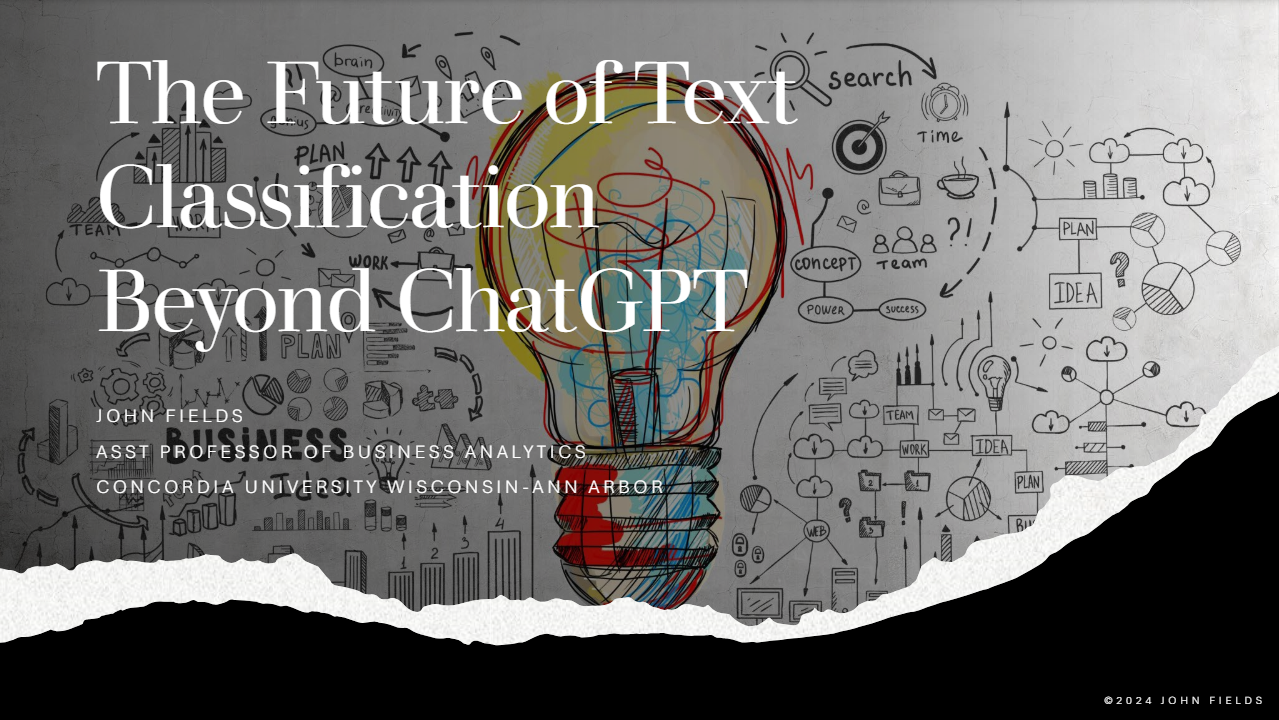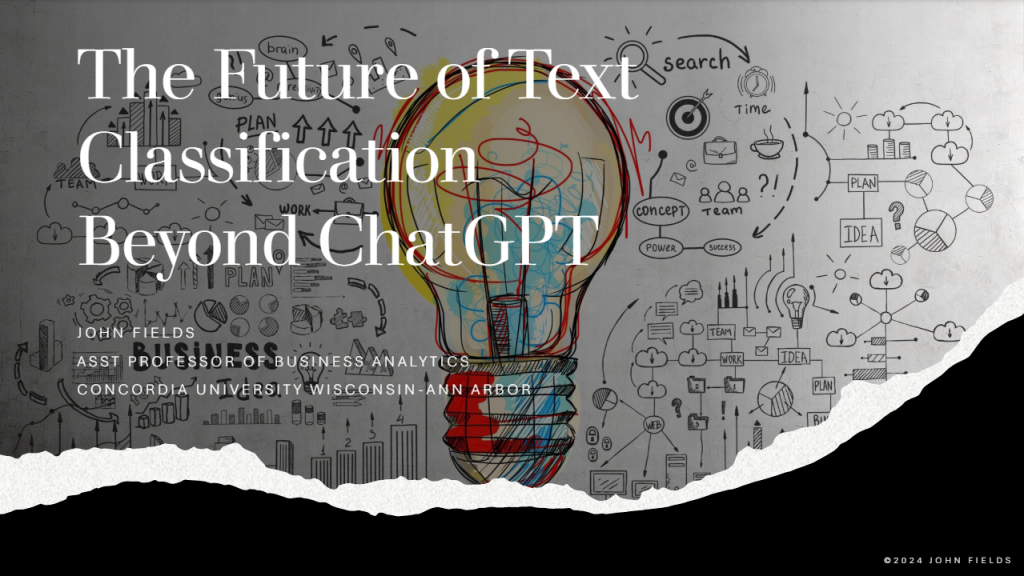
John Fields, PhD, an assistant professor of business analytics, recently published a paper on the applications for text classification and natural language processing.

By John Fields, PhD (with assistance from Claude)
Text classification, a fundamental task in natural language processing (NLP), has come a long way in recent years. From simple rule-based systems to sophisticated machine learning models, this field has been at the forefront of AI advancements. The emergence of ChatGPT and similar large language models (LLMs) represents a significant leap forward, showcasing how far we’ve come from basic text classification tasks.
ChatGPT, developed by OpenAI, builds upon the transformer architecture and uses vast amounts of training data to generate human-like responses to prompts. While its roots lie in text classification and prediction, ChatGPT’s capabilities extend far beyond, demonstrating an ability to understand context, generate coherent text, and even tackle complex reasoning tasks.
Data privacy preservation
As impressive as these advancements are, they also raise important questions about data privacy and security. The next breakthrough in AI may well come from the field of privacy-preserving machine learning (PPML). This emerging area aims to develop techniques that allow AI models to learn from data while protecting individual privacy.
PPML techniques like federated learning, differential privacy, and homomorphic encryption could enable the development of powerful AI systems that respect user privacy. These approaches could allow for the training of models on sensitive data without exposing individual information, potentially opening up new applications in healthcare, finance, and other privacy-sensitive domains.
As we continue to push the boundaries of what’s possible with AI, balancing innovation with privacy concerns will be crucial. Privacy-preserving machine learning may hold the key to unlocking the next generation of AI breakthroughs while maintaining public trust and protecting individual rights.
Explore more
Fields recently presented on this topic at the inaugural Inspire & Ignite Leadership Conference, held May 8-10 in Michigan. Click below to view an overview of his presentation, or read his scholarly publication here.

Want in?
The Batterman School of Business at CUW offers a complete range of business education programs and degrees including associate and bachelor’s degrees for undergraduate and accelerated adult students, licensures, and certifications. Graduate programs include the highly ranked Master’s of Business Administration (with 13 concentrations), Master’s in Leadership, Accountancy, Business Analytics, a Doctor of Business Administration, and a PhD in Business Administration.
Business undergraduate students also participate in the Concordia Core, a rigorous, liberal arts curriculum integrated with Lutheran distinctives.